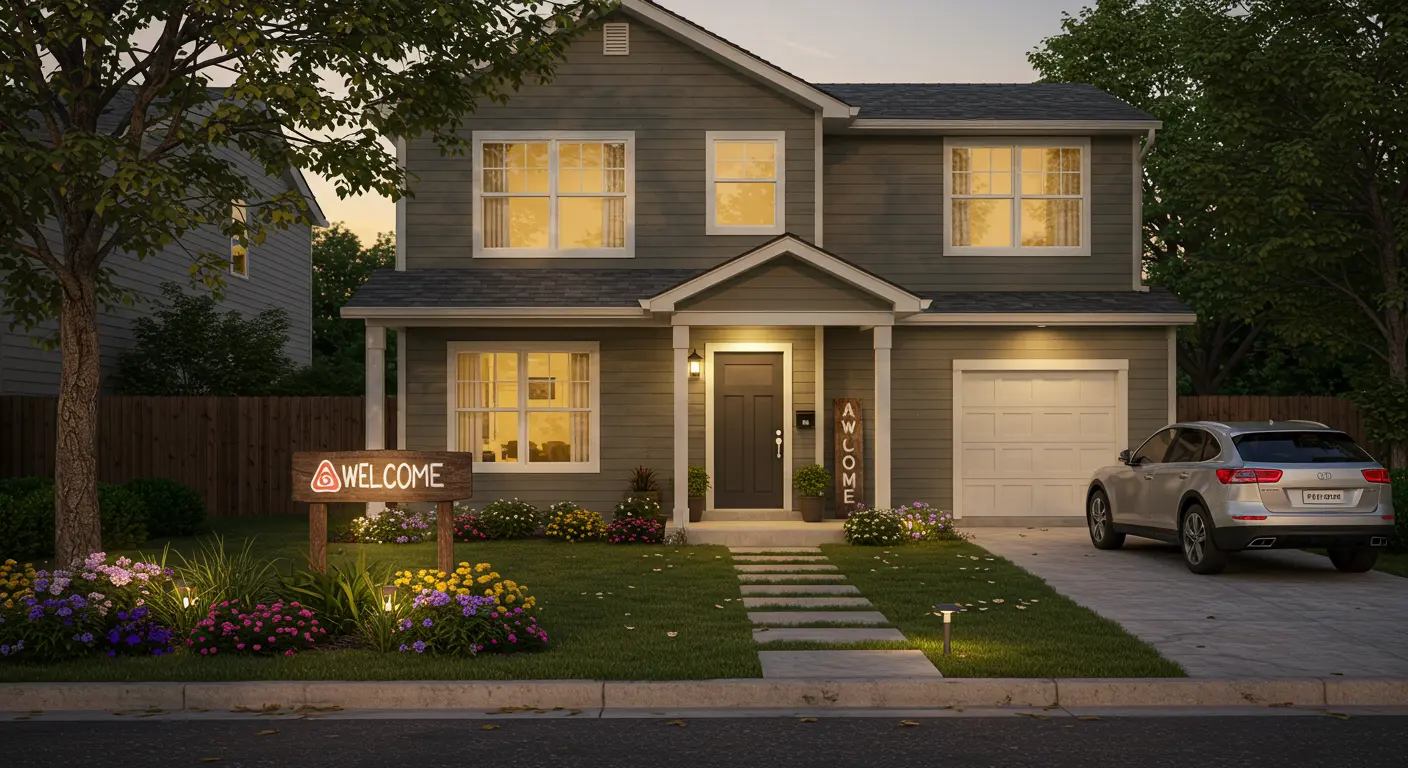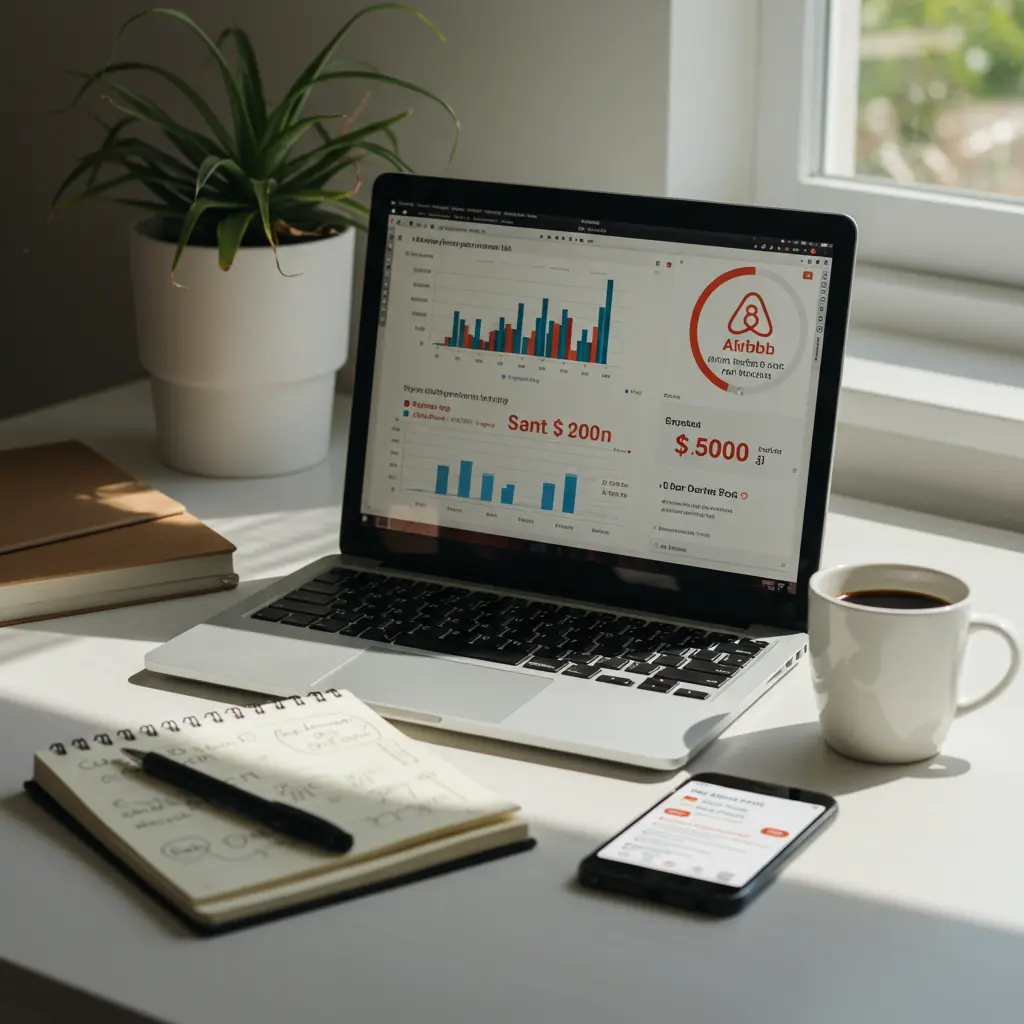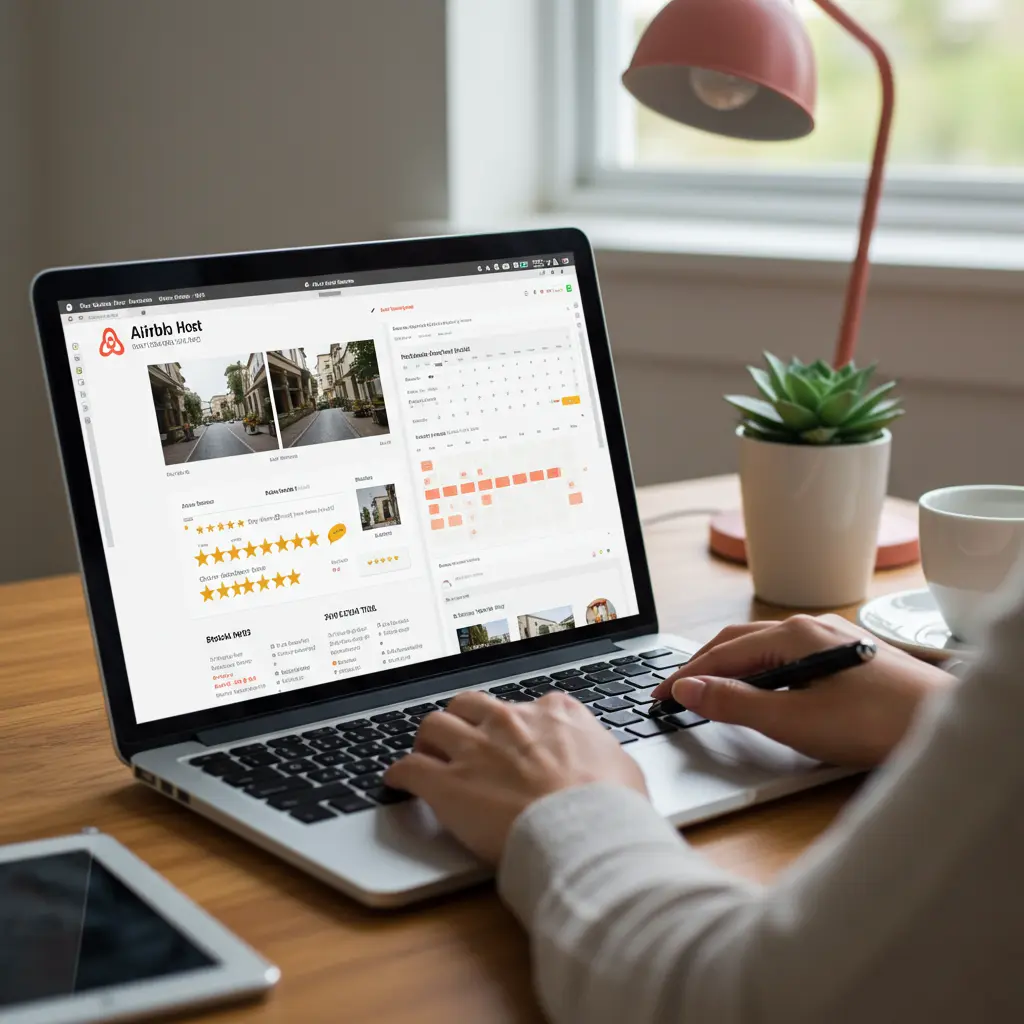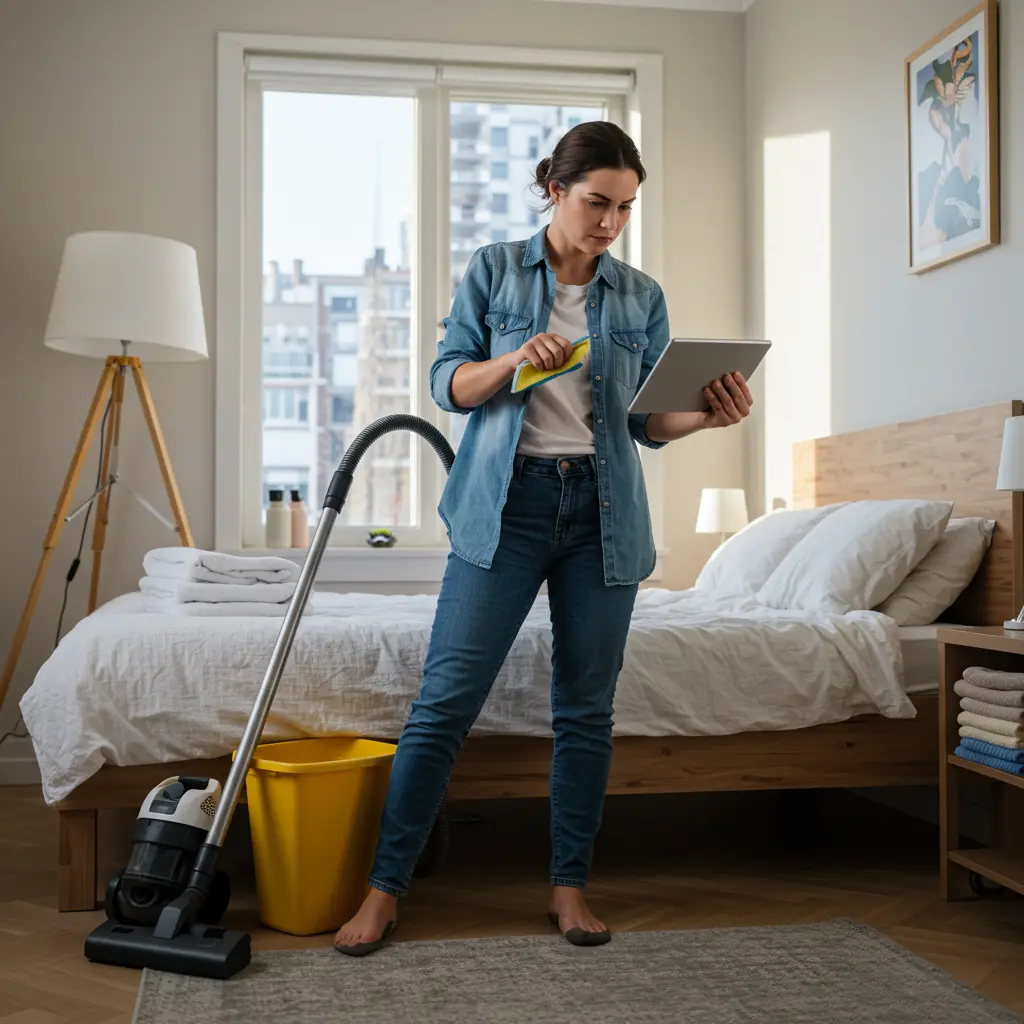In today’s high cost economy, finding reliable sources of supplemental income has become more of a necessity than a luxury.

As household expenses continue to rise, homeowners across the U.S. are turning to creative ways to make their properties work harder for them. Enter Airbnb a platform that has transformed spare rooms and vacant guesthouses into income generating assets.
The Rise of the Short-Term Rental Economy
Traditional hotels no longer have a monopoly on where travelers rest their heads. The rise of platforms like Airbnb has democratized hospitality, allowing everyday homeowners to tap into the lucrative short term rental economy. This transformation isn’t a passing trend. it’s a structural redefinition of how space is utilized and monetized.
The Allure of Passive Income from Home Assets
Owning a home has always been synonymous with equity building. But in a post pandemic era marked by rising costs and financial uncertainty, homeowners are discovering a new dimension to property ownership: cash flow. With as little as a spare room, many are pocketing an extra $500 per week, converting underutilized square footage into a reliable revenue stream.
The Airbnb Opportunity
What Makes Airbnb a Unique Income Stream
Airbnb offers a hybrid between a traditional lease and a hospitality service. It’s flexible, scalable and less encumbered by long term tenant laws. For homeowners, it’s a dynamic way to generate income without relinquishing control over their property.
Demographics: Who Is Earning from Airbnb?
The typical Airbnb host isn’t a professional landlord. They are teachers, retirees, digital nomads or military families. Some rent out a finished basement. Others share their guesthouse. The beauty lies in its inclusivity Airbnb doesn’t require large capital investments to begin earning.
How U.S. Home owners Earn an Extra $500/Week with Airbnb
Breaking Down the $500/Week Figure

Average Nightly Rates Across the U.S.
Across suburban neighborhoods and small cities alike, nightly rates for short term rentals can range from $75 to $150, depending on the property and season. Hosting just 4–6 nights a month at moderate pricing levels can generate upwards of $500.
Occupancy Rates That Make It Possible
National occupancy averages hover around 50–70% for active listings. Strategic pricing, good reviews and attention to guest experience can push occupancy even higher. A part time host doesn’t need full bookings every night to reach that $500 benchmark.
Types of Properties That Perform Best
Spare Rooms vs. Entire Homes
Entire home listings often command higher prices but private rooms can outperform in dense urban areas or regions with high solo traveler volume. A well decorated in law suite or converted garage can attract niche travelers seeking affordability and charm.
The Role of Location, Amenities and Seasonality
It matters to be close to hospitals, universities and tourism destinations. Likewise, considerate amenities coffee station, Wi-Fi and even a map to the area. Seasonality is important: summer is when beach cottages are most popular and winter is when mountain cabins are most popular.
Initial Setup: What Homeowners Need to Get Started
Listing Essentials: Photos, Pricing, and Descriptions
First impressions are digital. High resolution photography, competitive pricing and compelling descriptions are non negotiable. An honest, welcoming tone can make a listing stand out in saturated markets.
Regulatory Considerations and Local Ordinances
Cities like New York, San Francisco and Miami have strict short term rental laws. Homeowners must navigate zoning codes, licensing requirements and potential tax implications to remain compliant and avoid hefty fines.
https://www.igms.com/making-money-with-airbnb
Optimizing Listings for Maximum Bookings

The Psychology of a High-Converting Listing
Guests gravitate toward listings that feel safe, warm and predictable. Keywords like “private,” “quiet” and “convenient” signal value. Highlighting nearby experiences and including guest testimonials builds credibility.
Smart Pricing Tools and Calendar Strategies
Dynamic pricing tools such as Airbnb’s Smart Pricing or third party apps adjust rates based on demand, events and competitor listings. Blocking certain dates or offering discounts for last minute bookings can also increase occupancy.
Creating an Exceptional Guest Experience
The Little Touches That Lead to 5-Star Reviews
Fresh linens, a welcome note or a local snack basket cost little but deliver disproportionate returns in reviews. Thoughtful gestures elevate the stay from functional to memorable.
Dealing with Difficult Guests Professionally
Not every stay is idyllic. Hosts must maintain professionalism during disputes, miscommunications or damage claims. Clear house rules and swift, polite communication can prevent or resolve most issues.
Financial Mechanics of Airbnb Income
Gross vs. Net: Fees, Taxes and Expenses
A service fee usually around 3% for hosts, is assessed by Airbnb. In addition, hosts need to budget for utilities, cleaning supplies, restocking and wear and tear. Typically, net income ranges from 75 to 85% of gross bookings.
How Hosts Manage Payouts and Cash Flow
Airbnb offers weekly payouts, which can be scheduled directly to a bank account. Seasoned hosts create cash buffers to handle vacancies or unexpected costs, treating their rental as a mini business unit.
Time Commitment and Operational Realities

Managing Cleaning, Check-ins and Messaging
Hosting takes time answering questions, prepping for arrivals, coordinating cleanings. But tools like automated messaging, keyless entry and checklists streamline the process.
Outsourcing and Automation for Efficiency
Many hosts delegate cleaning, guest communication and even pricing to third parties or apps. Virtual assistants, property management services and turnover specialists help scale without burnout.
Legal and Insurance Implications
Homeowner’s Insurance vs. Airbnb Coverage
Traditional homeowners’ policies often exclude short term rental activities. Airbnb offers Host Protection Insurance but it’s limited. Many hosts seek supplemental coverage to mitigate liability and property damage.
Navigating HOA and Zoning Rules
HOAs and condominiums may completely prohibit short term rentals. Others permit them under certain conditions. In order to prevent disputes with associations or neighbors, homeowners must take reasonable precautions.
Risk Management and Mitigation
Common Pitfalls and How to Avoid Them
Overbooking, negative reviews, and neighbor complaints are common pitfalls. Prevention lies in communication, vetting guests and underpromising while overdelivering.
Protecting Your Property and Your Peace of Mind
Install cameras (exterior only), require security deposits and keep valuables locked away. The goal is to welcome strangers while minimizing exposure to harm or disruption.
Long-Term Potential and Strategic Growth

From Extra Cash to Full-Time Hosting
A side project has the potential to grow into a full time job. Purchasing more properties or subleasing under Airbnb friendly terms are common ways for hosts to grow. It has scalable potential.
Leveraging Airbnb to Pay Down Mortgages or Fund Other Ventures
That extra $500 per week can snowball. Some use it to accelerate mortgage payments. Others reinvest in upgrades, stock portfolios or vacation funds. It’s not just income. it’s financial leverage.
Conclusion:
Airbnb isn’t just a trend. it’s a transformative opportunity for U.S. homeowners seeking practical, flexible income. From understanding the Airbnb opportunity to navigating its financial mechanics. it becomes clear that earning an extra $500 per week isn’t a lofty dream, but a realistic target when approached with strategy and care.
By carefully breaking down the $500/week figure, homeowners can see exactly how a few well placed bookings each month translate into meaningful earnings. Whether listing a spare room or an entire home, property owners are discovering that success hinges more on presentation, pricing and guest experience than on square footage alone.
Q: Why is Airbnb a good income opportunity for homeowners?
A: Airbnb allows homeowners to earn money by renting out spare rooms or properties on a short term basis. It offers flexibility, control and access to a massive global market without the need for a traditional lease.
Q: What kind of properties do best on Airbnb?
A: Entire homes, guesthouses, private rooms and even well furnished basements can perform well. Properties near tourist spots, universities or business hubs tend to attract more guests.
Q: What do I need to list my home on Airbnb?
A: You’ll need high-quality photos, an accurate description, basic furnishings, a clean space and knowledge of local short term rental regulations. A user friendly setup is key.
Q: Do I need special insurance to host on Airbnb?
A: Yes. Standard homeowners insurance often doesn’t cover short term rentals. Airbnb offers some protection but hosts are encouraged to get dedicated short term rental insurance for full coverage.